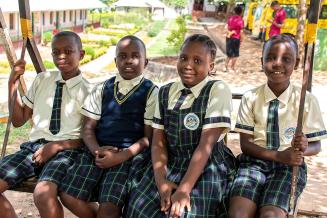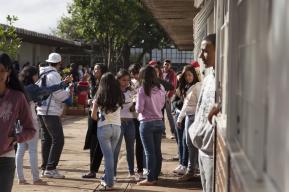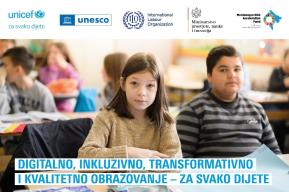Project
Our Rights, Our Lives, Our Future Project - Phase II
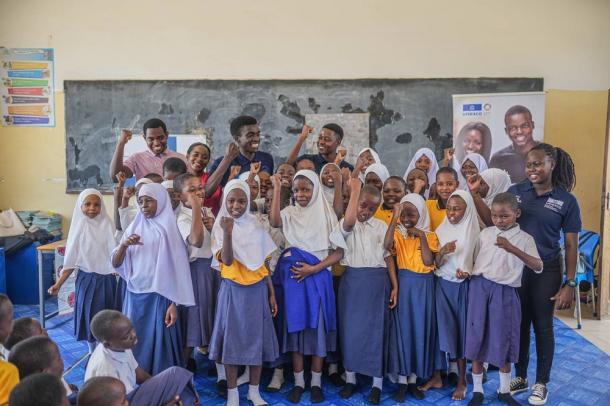
About the Project
In Phase II of the Our Rights, Our Lives, Our Future Programme, UNESCO continues to support governments’ efforts to improve SRH, gender, and education outcomes for Adolescents and Young People in the SSA region in order to sustain reductions in new HIV and other STI infections, EUPs, and school violence, all of which still pose serious threats to learner well-being.
Project Duration
July 2023 - June 2027 (4 years)
Vision and Goal
Children, adolescents, and young people in Tanzania are healthy, educated, and empowered to thrive and reach their full potential to contribute to the development of their community, country, and region.
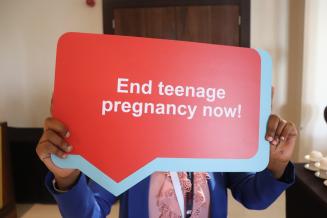
Impact
Reduction in new HIV infections, early and unintended pregnancy, gender-based violence, and child marriage, and increased school completion rates at all levels.
Objectives
- Support an enabling policy and institutional environment for implementation of school health programmes that include LS-based SRH, HIV and GBV (CSE) includes prevention of school violence & bullying.
- Support countries to scale up and strengthen the delivery of accurate, rights-based, gender transformative, and good quality teaching and learning on LS-based SRH, HIV and GBV (CSE) including school violence & bullying prevention.
- Empower AYP and respect their right to make decisions and drive change in their lives and communities using digital innovations.
- Promote the creation of safer, inclusive school and community environments with linkages to accessible, youth-friendly SRH and support services.
- Strengthen programme implementation through evidence generated from monitoring, evaluation, research, and learning.
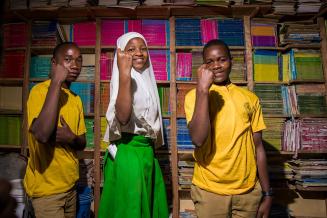
Target Beneficiaries
Children and young people (aged 5-24 years) will be reached through formal and non-formal education, with a specific focus on the needs of adolescent girls and young women, young people living with HIV, young people living with disability, young people in humanitarian crisis settings, and young key populations.
Secondary beneficiaries:
Pre-and in-service teachers, school management, policy-makers, parliamentarians, parents, guardians, and traditional, community, and religious leaders.
What's New in Phase II
- Improving quality of LS-based SRH, HIV and GBV (CSE) delivery including prevention of school violence & bullying: (In this new phase, UNESCO will take deliberate steps to deepen the quality of EHW programme delivery at classroom level to enhance better outcomes for sustainability and impact).
- Social and gender norms transformation: (Intensify efforts to support countries to better understand the complex social norms that affect AYP’s gender, education, and SRH outcomes, and advocate for good quality CSE that starts at an early age (5-12 years) in primary school).
- Renewed focus on CSE for younger learners: (focus on continued work with partners to develop and strengthen curricula for this age group (5-12 years). Providing education on health, well-being, and relationships in an age- and developmentally-appropriate manner.
- Supporting youth agency: (pursue alternative ways to reach young people outside the classroom to build their skills to develop and maintain healthy behaviors and protect their safety in their communities and within the digital spaces they inhabit).
- Reaching hard-to-reach young people: intensify efforts and strategies to reach hard-to-reach young people, starting with those left furthest behind. These include young people with disabilities, young people in conflict or humanitarian crisis settings, and young people living with HIV
- Emphasis will be placed to ensure Sustainability, accountability, and domestic support for the SRHR agenda
SDGs
The O3 Programme phase II contribute directly to the achievement of SDG 3 (health), SDG 4 (education), and SDG 5 (gender equality), as well as their specific targets, while also contributing to the achievement of other key SDGs, especially those related to poverty, hunger, peaceful and just societies.
